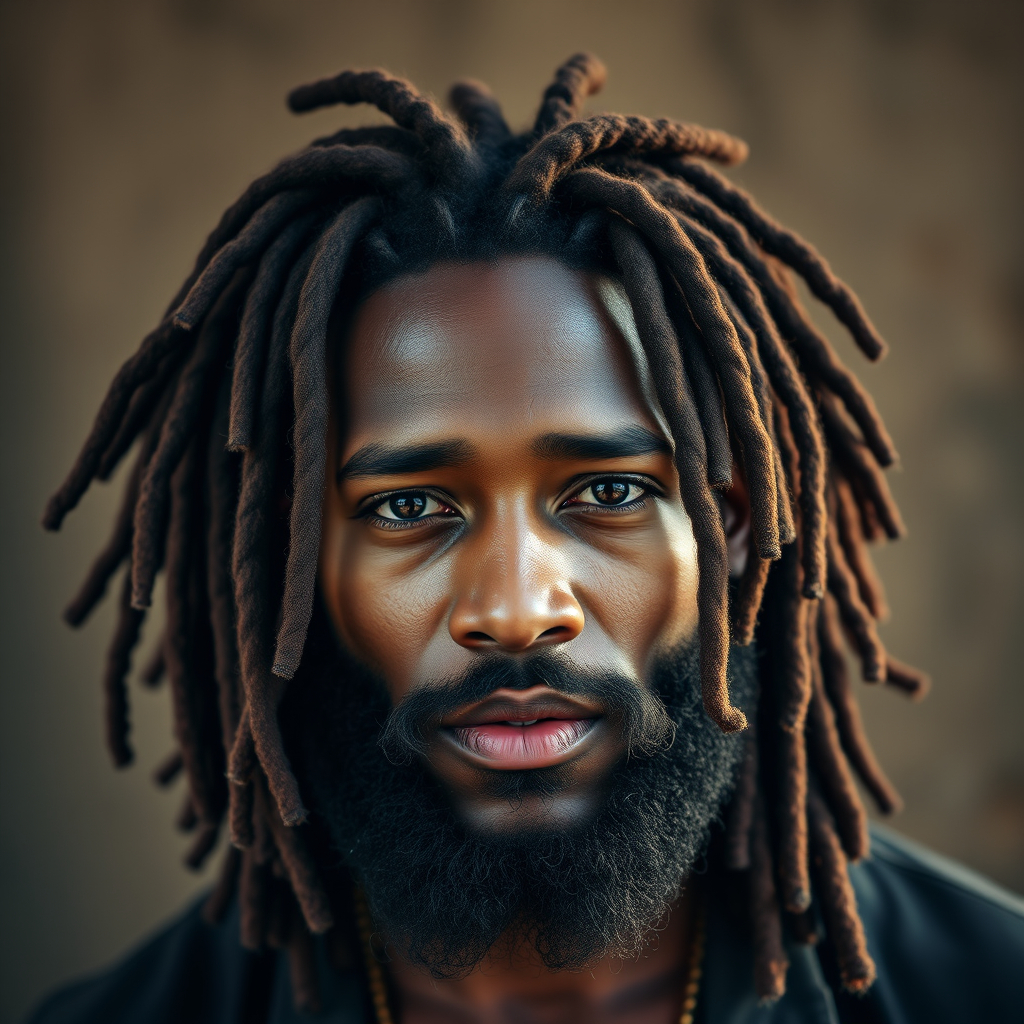Reclaiming the Beauty of Locks: Understanding Their True Historical Significance
- Jeffery Sacks

- Oct 17, 2025
- 4 min read

Locks have always been symbols of strength, spirituality, and self-expression. They have existed long before colonial narratives distorted their meaning. From the ancient civilizations of Africa to vibrant Caribbean cultures, locks represent thousands of years of history, identity, and pride. This blog post seeks to educate and inspire a deeper understanding of locks' true history and values, encouraging readers to reclaim pride in hair traditions that have often been misrepresented.
Ancient Origins of Locks
The history of locks dates back to ancient civilizations, where hairstyles were not merely for show but profound expressions of identity and spirituality. In ancient Egypt, depictions often portrayed warriors, priests, and royalty with intricately styled locks. These hairstyles signified a connection to the divine and the ancestors.
Various African tribes, including the Maasai, Himba, and Ashanti, wore locks as symbols of beauty, age, and wisdom. For these cultures, locks reflect the freedom of hair growing in its natural state. For example, some Himba women style their locks with earthy red pigments, signifying both beauty and fertility. This spiritual connection to ancestors is a powerful reminder of locks' significance in African heritage.
The British and the Term “Dread”
The term “dreadlocks” originated during the colonial era when British colonizers first encountered Jamaican Maroons and later Rastafarians. To these colonizers, the natural, locked hair of these communities was labeled as “dreadful.” This term was more than just a description; it served as a tool of control, designed to demonize what they did not understand. Associating locks with fear and rebellion allowed colonizers to undermine the cultural significance of this hairstyle.
This misrepresentation reinforced colonial narratives that devalued African cultures. The term “dread” mirrored the colonizers' fear of the unknown and their desire to maintain power over those they deemed inferior. Recognizing this historical context is essential to understanding locks' journey and reclaiming their true meaning.
Reclaiming the Name and the Style
In recent years, many Black individuals and natural hair advocates have worked to reclaim the term “dreadlocks.” This reclamation goes beyond changing a name; it aims to redefine beauty standards and celebrate the cultural importance of locks. Celebrities like Erykah Badu, Lauryn Hill, and Bob Marley have used their influence to promote locks as symbols of pride and resistance. For instance, Bob Marley famously stated, "Emancipate yourselves from mental slavery; none but ourselves can free our minds." Their messages have inspired countless individuals to embrace their natural hair, challenging long-standing societal norms about beauty.
Cultural Respect and Modern Revival
Locks are now celebrated worldwide, transcending cultural boundaries and serving as symbols of empowerment for many. However, embracing this modern revival requires honoring the cultural and spiritual roots of locks. Understanding their history allows us to appreciate their significance and the journey they have undertaken.
As we navigate today's beauty landscape, it is vital to approach the subject of locks with respect. Many admire the beauty of locks without acknowledging their historical context, which can lead to cultural appropriation. For example, when celebrities adopt locks without understanding their significance, they can diminish their cultural value. Encouraging dialogue about cultural respect can help bridge the gap between appreciation and appropriation. By educating ourselves about the true significance of locks, we can foster a deeper understanding of this beautiful expression of identity.
The Empowerment of Natural Hair Movements
Natural hair movements are vital in reclaiming locks. These movements promote embracing natural textures and styles, focusing on self-love and acceptance. Social media platforms like Instagram and TikTok have created spaces for sharing experiences and inspiration, creating a community that celebrates hair diversity. In fact, studies show that Black women who embrace their natural hair report a 70% increase in self-confidence compared to those who do not.
Through these movements, individuals have begun to redefine beauty standards, moving away from historically Eurocentric ideals. The celebration of locks is not just about appearance; it is about reclaiming one's identity and heritage.
As more individuals share their journeys of embracing natural hair, the stigma surrounding locks diminishes. This shift in perception highlights the resilience of those who have resisted societal pressures to conform. Embracing locks serves as a powerful reminder of the strength and beauty inherent in natural hair.
The Global Influence of Locks
Locks have reached global audiences, influencing fashion and beauty trends worldwide. From runways to music videos, the beauty of locks is celebrated in various forms, showcasing their versatility. However, as locks gain popularity, it is crucial to remember their origins. Their appeal lies in their aesthetic value and the rich history and cultural significance they carry. For instance, a survey revealed that 58% of people aged 18-34 see locks as a form of artistic expression.
As we celebrate this global influence, we must advocate for cultural respect and understanding, ensuring that locks are appreciated in their proper context.
A Final Reflection
The history of locks embodies strength, spirituality, and self-expression. By understanding their true historical significance, we can reclaim pride in our natural hair traditions and challenge outdated misconceptions. Locks are not “dreadful”; they are divine expressions of identity and heritage.
As we celebrate the beauty of locks, let us honor their origins and recognize the journey they have taken through time. Embracing our natural hair is a collective movement toward empowerment, cultural pride, and self-acceptance.
By reclaiming the beauty of locks, we not only honor our individual identities but also contribute to a broader narrative of resilience and strength. Let us continue to educate ourselves and others, fostering a richer understanding of the significance of locks in our lives and in the world around us.




Comments